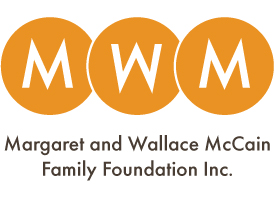
Margaret McCain, the former first female lieutenant-governor of New Brunswick, addressed New Brunswick’s Department of Education and Early Childhood Development in Fredericton on Wednesday about a link between literacy and early education. Photo: Elizabeth Fraser/ the Daily Gleaner
Elizabeth Fraser, The Daily Gleaner
Former New Brunswick Lt.-Gov. Margaret McCain says more work needs to be done to reduce adult literacy deficits in the province.
McCain was in Fredericton, addressing the Department of Education and Early Childhood Development to improve literacy deficits within the province, Wednesday.
The presentation focused on the linkage between early childhood education and adult literacy in New Brunswick.
“It’s educating the public that we need to do this,”said McCain after Wednesday’s meeting.
Nationwide, McCain said about 42 per cent of Canadians are functionally illiterate, while about 59 per cent are from Atlantic Canada.
“You cannot thrive as a province, you cannot thrive as an individual with illiteracy,” said McCain, founder of the Margaret and Wallace McCain Family Foundation, an organization that works with early childhood education programs, providing equal opportunities for children across Canada. “Literacy is fundamental to job skills, we bring in jobs but we don’t have the workforce to do it.”
About 25 officials from the Department of Education were part of McCain’s address.
“The best way to improve early childhood development outcomes is through the school system, through early childhood education because it includes care and all children have access to care allowing parents to work,” she said.
McCain said the province will improve adult literacy by attaching childhood education centres to schools across the province, where children between two and five come together on a regular basis with an intentional program guided by educators in early childhood. The facilities will help children learn through their environments by developing language skills, negotiating with other children through play and developing imaginative play.
“We’re not talking about putting kids behind desks, it’s playing with a purpose and guided with an evidence based curriculum,” said McCain, who noted the project might take years to complete and needs help from both provincial and federal governments.
McCain said these facilities will improve literacy in New Brunswick, displaying a reduction in access to social services, reduce schools dropout rates, less criminal behaviour in teens, less mental illness.
“There are many benefits to early childhood education,” said Jane Bertrand, program director with the Margaret and Wallace McCain Family Foundation.“Our goal is to improve literacy amongst the population, starting early with a solid foundation before kids enter school. It’s the most cost effective way to go forward and to make a significant difference.”
Throughout the meeting, McCain also applauded New Brunswick’s improvement from the foundation’s 2014 Early Childhood Education Report.
The report showed New Brunswick had the best improvement since the 2011 report.
Currently, New Brunswick has a score of eight out of 15 points, up from 4.5 in 2011.
The highest is P.E.I. and Quebec, sitting at a 10 points.
“Mrs. McCain has great knowledge of best practices in early childhood from around the world, and provided officials with some lessons learned from other countries and jurisdictions,” said a statement released by the province’s Department of Education. “Mrs. Mc-Cain was clear that high quality early learning and child care is directly linked to stronger literacy achievement later in life. We support this belief and will consider it as we establish policy and planning for our early childhood education system, moving beyond simply counting child care spaces and towards a quality early childhood education system.”
Bertrand said the province has reorganized their administrative infrastructure and brought things together within the Department of Education and Early Childhood Development. They’ve also set up regional structures with the new amalgamation of the school district.
“Change isn’t easy, and having a vision, a good backup plan and a blue print is about 10 per cent,” said Bertrand. “The other 90 per cent is about implementation and that’s always a complex, messy job between community base, government and regional government. It always takes times and involves a lot of change.”
Bertrand said the province has reorganized their administrative infrastructure and brought things together in department of education early childhood. They’ve set up regional structures with the new amalgamation of the school district.
